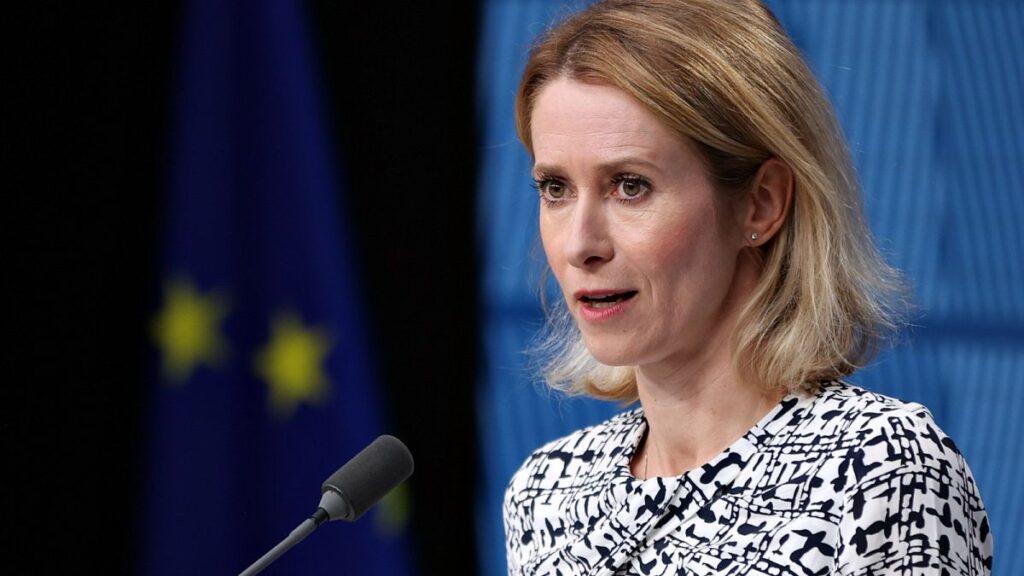Published on
•Updated
The European Union has formally summoned the Russian envoy in Brussels in response to the Russian strike that severely damaged the bloc’s delegation in Kyiv.
“No diplomatic mission should ever be a target,” High Representative Kaja Kallas said on Thursday as she announced her decision.
The Kremlin’s chargé d’affaires to the EU is Karen Malayan. The meeting with Kallas is expected to take place later on Thursday.
The overnight attack of 629 missiles and drones, part of Moscow’s campaign of sowing terror and chaos, has killed at least 17 people, including four children, and left dozens injured, causing major destruction across the city.
“While the world seeks a path to peace, Russia responds with missiles,” Kallas said.
“The overnight attack on Kyiv shows a deliberate choice to escalate and mock the peace efforts. Russia must stop the killing and negotiate.”
Two Russian missiles hit within 50 metres of the EU offices in the span of 20 seconds. The delegation, however, remains “fully operational” and “open”, a spokesperson said.
The British Council in Kyiv was also damaged during the barrage, prompting the UK government to summon the Russian ambassador to the country.
The Vienna Convention of 1961 foresees protection for diplomatic and consular premises against intrusion or damage, although it is not uncommon for these buildings to be impacted during wartime. The Kremlin has shown a consistent disinterest in upholding international rules throughout its full-scale invasion of Ukraine.
Separately on Thursday, Ursula von der Leyen said she was “outraged” by the barrage and confirmed no member of the delegation had been harmed.
“This is another grim reminder of what is at stake,” the president of the European Commission said in a short statement delivered to camera.
“It shows that the Kremlin will stop at nothing to terrorise Ukraine, blindly killing civilians – men, women and children and even targeting the European Union.”
Von der Leyen promised to tighten the screws on the Russian war machine with a 19th package of EU sanctions to be presented “soon”.
In parallel, she said, the bloc will work to further mobilise the frozen assets of the Russian Central Bank, worth an estimated €210 billion on EU soil, to finance Ukraine’s defence capabilities and reconstruction.
Asked if the Commission was considering confiscation, a radical step the bloc has refrained from taking due to international law constraints, a spokesperson confirmed the work would remain focused on the windfall profits, rather than the money itself.
This article has been updated with more information.
Read the full article here


